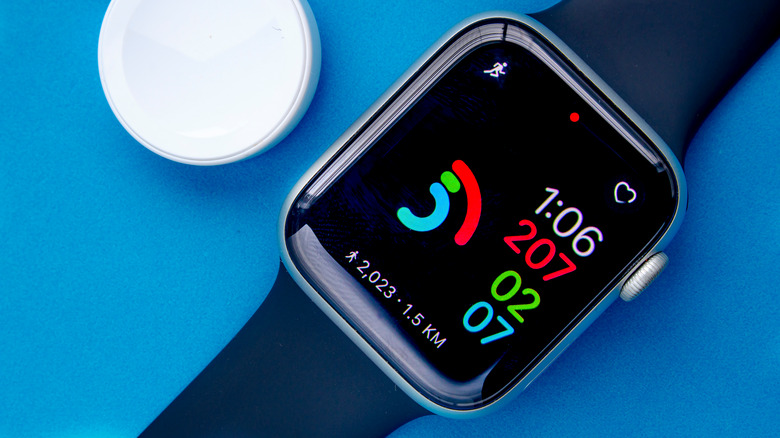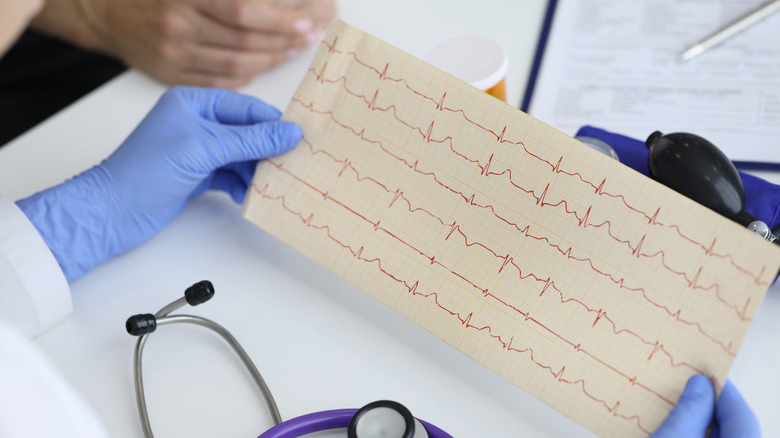A New Apple Watch App Could Help Detect Heart Failure
A new study out of Mayo Clinic published in Heart Rhythm Journal has some potentially good news for heart patients. The study found that an Apple Watch app using artificial intelligence (AI) could be effective in picking up on a type of heart failure called left-ventricular dysfunction. Left-ventricular dysfunction occurs when the left ventricle of the heart becomes weak, usually due to uncontrolled high blood pressure or damage to the heart muscle.
Heart failure can make it difficult for the heart to pump enough blood to the body, according to the National Center for Biotechnology Information. People with heart failure may be unable to get enough oxygen to their tissues and fluid may back up into their bodies. They can experience symptoms like shortness of breath, swelling of the legs and abdomen, weight gain, tiredness, cough, upset stomach, chest pain, and racing or irregular heartbeat (via heart.org).
Heart.org also explains that this condition cannot be cured. However, it can be managed. Lifestyle changes can include such things as quitting smoking, losing weight, limiting fluid intake, cutting down on alcohol and caffeine, getting exercise, and eating a heart-healthy diet. Medications often include those that control blood pressure or help the heart pump more effectively. In some cases, surgery or implanted devices can be used to help the heart perform better. If nothing else works, then a heart transplant may be a patient's only alternative.
Apple Watch app detects heart failure similar to an ECG
The research team chose to use an Apple Watch for their study because they have a sensor on them that can be used to detect problems with heart rhythm. They used this ability, in conjunction with an app developed by the Mayo Clinic, to perform electrocardiograms (ECGs) on the study participants. They found that the app and Apple Watch were able to detect a weak heartbeat, and did a better job of analyzing electrocardiogram (ECG) rhythms than the medical treadmill test, according to Mayo Clinic. Additionally, participation was high, with 92% of participants using the app more than once during the trial.
Study author Dr. Paul Friedman told Mayo Clinic, "This is what the transformation of medicine looks like: inexpensively diagnosing serious disease from your sofa." He feels it's an important first step in transformational medicine.
Another study author, Dr. Bradley Leibovich stated, "The ongoing AI research in cardiology is part of Mayo's commitment to bringing a digital transformation to health care. Advanced diagnostics that once required travel to a clinic can be accurately done, as this Apple Watch ECG study demonstrates, from a patient's wrist whether they live in Brazil or Baton Rouge" (via Mayo Clinic).


